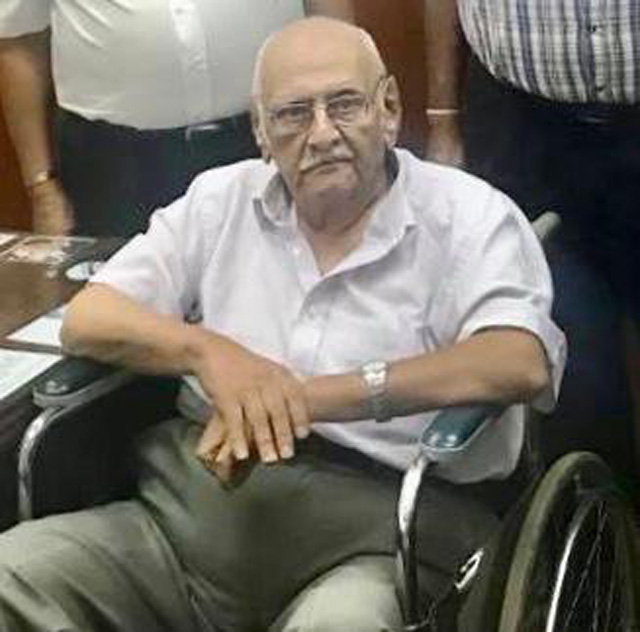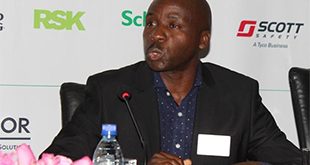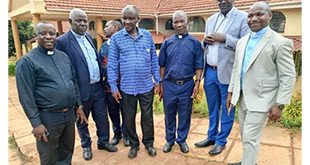
Kampala, Uganda | THE INDEPENDENT | It was a somber mood at the head offices of Rwenzori Commodities Limited on plot 11 Old PortBell Road in Kampala on Thursday afternoon. Top government officials and business community were quietly ushered into the upper floor of the building to pay their last respect to the late Amirali Karmali, the founder of Mukwano group.
Amirali, 89, died on Wednesday evening in the Kampala upscale suburb of Kololo. The industrialist lived much of his life out of the limelight – where he quietly built an empire that touched every aspect of life, not only for Ugandans but also citizens of neighboring countries including DRC, Rwanda, South Sudan and Central African Republic.
Even after Amirali’s death, his family chose not to overplay it in the media. Only two tweets – one from Mukwano Industries Limited and another from Exim Bank Uganda were sent out proclaiming the humbleness and down to earth character of the deceased.
Such was a life he preferred. In Fort Portal, where he has two homes, locals talk of a humble residence where he lived and that he occasionally walked around the village greeting ordinary people. Judy Rugasira Kyanda, the Managing Director Knight Frank Uganda, a real estate agent that manages Mukwano properties in Kampala, described Amirali as “always happy to see people and not selective about who he meets.”
“He welcomed everyone big or small, child or adult,” she said. It is little wonder then, that this rapport paved way for the nickname “Mukwano” that would become the name of his empire. Alykhan Karmali, the Managing Director of Mukwano group, who took from his father in 1995 when he retired from active work, says on the group website, that the name symbolizes the fact that Mukwano products had become a friend to millions of people not just in Uganda but in the region.
The name was originally given to Alimohamed Karmari, the father of Amirali, who landed on the East African coast in 1904. According to available information, Amirali struggled through the 1970s when Idi Amin ordered the expulsion of Asian from the country. He chose to stay but couldn’t do business assertively.
It was not until the 1980s, with Amirali firmly in charge that their businesses started to sprout.
A statement on the legacy of the business says Mukwano Industries Uganda Limited began operations in the 1980s in Kampala with a single enterprise store dealing in general merchandise and produce. “The first major step in the growth of the company was taken in 1986, in the manufacturing of soap and edible cooking oil,” it reads.
Adding that, “These were the mainstay of the company until the late 1990s when we made a major investment into the manufacturing of detergents and plastics. This etched Mukwano’s position to the helm of the manufacturing sector.”
The Empire
On Kampala streets, URN spoke to several people and many, said they had never seen or heard the name Amirali – but all had used Mukwano products. While Amirali stayed quiet, he grew the empire to the pinnacle – from transport, real estate, banking and manufacturing.
Paul Lakuma, a senior research fellow at the Economic Policy Research Centre (EPRC) in Makerere University, said Amirali “demystified the fact that a home-grown manufacturer could succeed in very rugged terrain.”
“He is an inspiration to those who prospect to join the industrial class,” Lakuma said. A story is told of how the tea-growing sector in Uganda had collapsed until Amirali, through the Rwenzori Commodities Limited turned it around.
Thomas Joseph is the General Manager Rwenzori Commodities in Tooro where he has worked since 1993. He says the tea factories established by Amirali employ 3,600 workers and Shillings 1.5 billion is spent on staff salaries every month.
In the public information on the group’s website, the Mukwano Empire is clustered in five divisions: manufacturing, agriculture, logistics and supply chain, property development and joint ventures. Under manufacturing, the group made almost every item you use at home – from bathing soap, detergent to clean your toilet, cooking oil to the plastic chair you sit on.
At least four divisions are registered under the manufacturing strand. They include A.K Plastics Limited, which produces more than 150 industrial and domestic plastic items ranging from kitchenware to garden furniture and multi-purpose crates, the group reports.
The other, Mukwano Industries Limited produces several cooking oil brands. Rwenzori Commodities Limited, which trades Mukwano tea, also falls here. Under Agriculture, the group says its operations are based around Bunyoro sub-region in western Uganda and Lango sub-region in northern Uganda where hundreds of acres are under cultivation for tea, sunflower, and Soya.
On logistics and supply chain, the group does its work under A.K Transporters Uganda Limited where it runs over 200 heavy, medium and light trucks. On property development, the group runs under the name Gulf Stream Investments (Uganda) Limited and in 2014, they completed a landmark Acacia Mall, one of the most popular shopping areas in Kampala.
Company files show that they have also constructed a five-star hotel in Kigali, Rwanda, giving Mukwano industries Uganda, an entry into the tourism and hospitality industry. On joint ventures, the group owns Exim bank Uganda together with Exim Bank Group Tanzania.
On Thursday as dignitaries, signed the condolence book, the air was filled with a sense of fulfillment. The Attorney General William Byaruhanga and businessman Patrick Bitature were among the first people to visit on Thursday. To the Ugandan economy and the 10, 000 people the group employs, Amirali, the humble giant will continue to be a strong pillar.
*****
URN
 The Independent Uganda: You get the Truth we Pay the Price
The Independent Uganda: You get the Truth we Pay the Price



The hard-working tycoon that grabbed the land Uganda Transport bus park and converted it to personal use.
Broke down a school kyaggwe road primary school to build a shopping mall.
Demolished the children public library opposite arua park to construct another shopping mall.
Grabbed another piece of public land i.e Uganda Railway land to construct a factory that polluted the air, lake Victoria thru nakivubo channel discharge while poorly paying the Ugandan employees all for personal enrichment.
Spoke openly how he was a master at smuggling and dodging taxes, etc.
Lionizing unabashed crooks while holding them out as role models to emulate will ,if it has not yet, breed more determined and highly destructive heartless crooks that will sadly lead to total destruction of Uganda.
May God have mercy on the soul of this crook, and also bring a quick and more painful end to other surving crooks and hopefully spare our country from birth of anymore of these kinds of crooks.